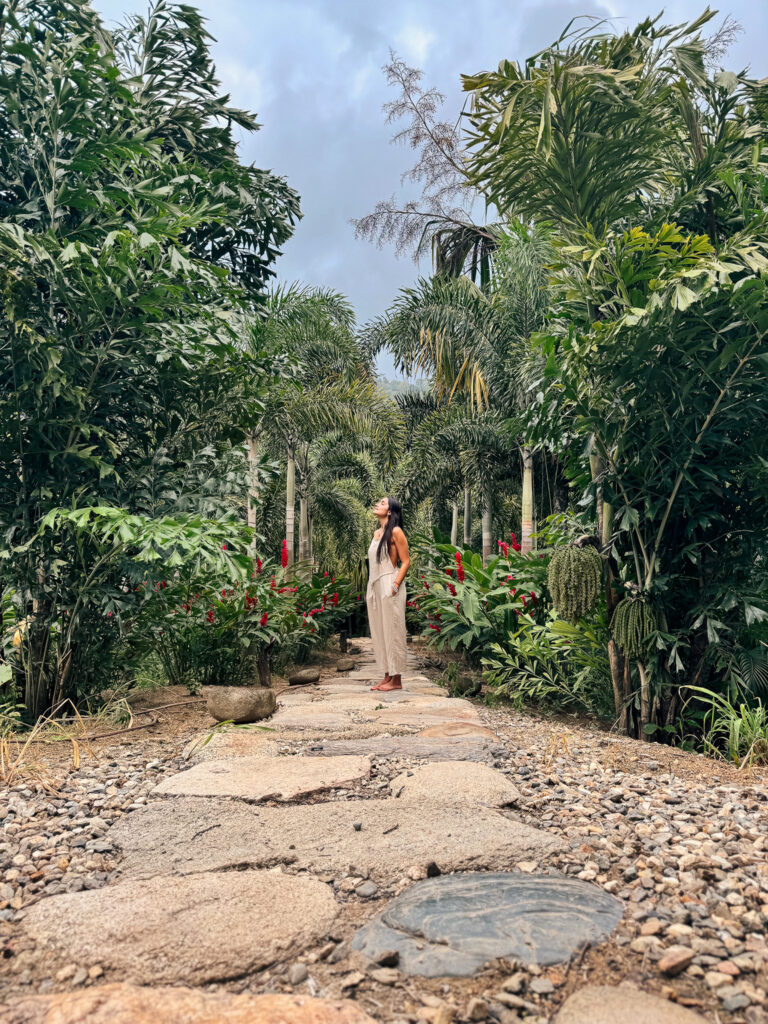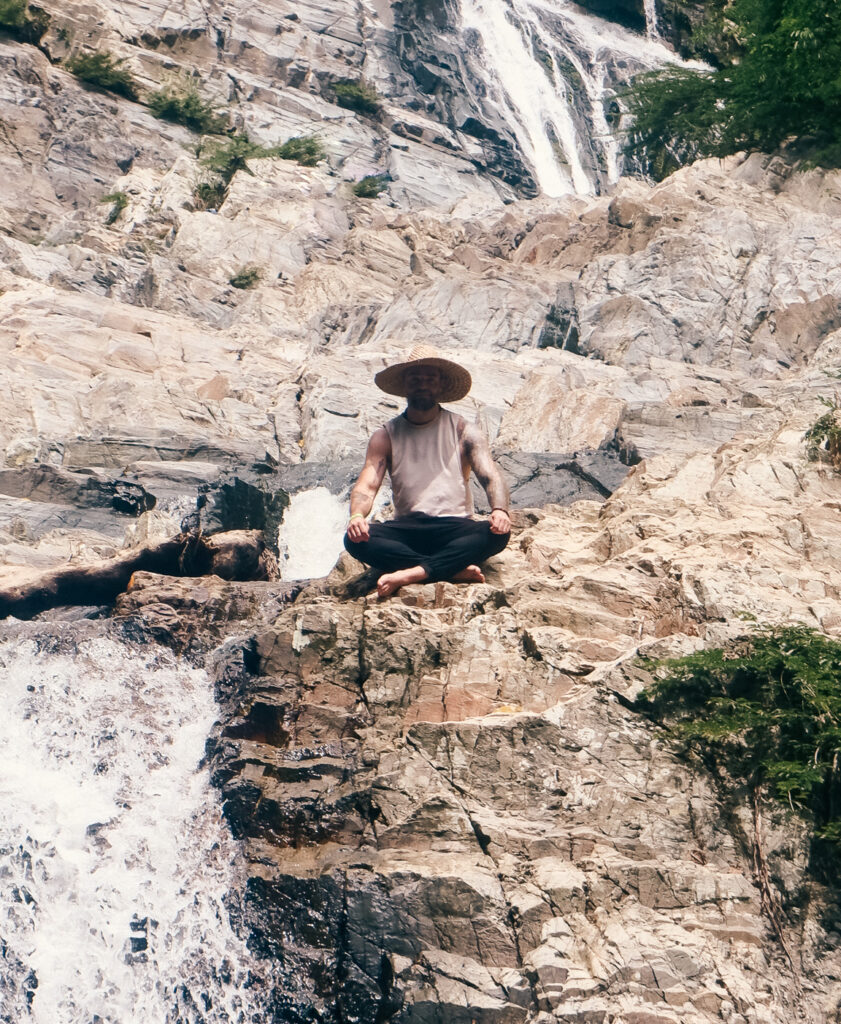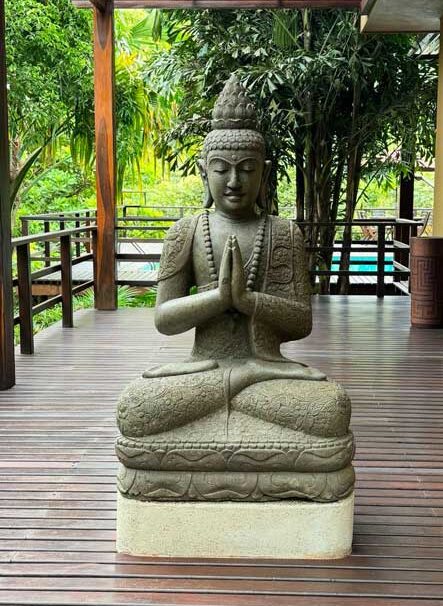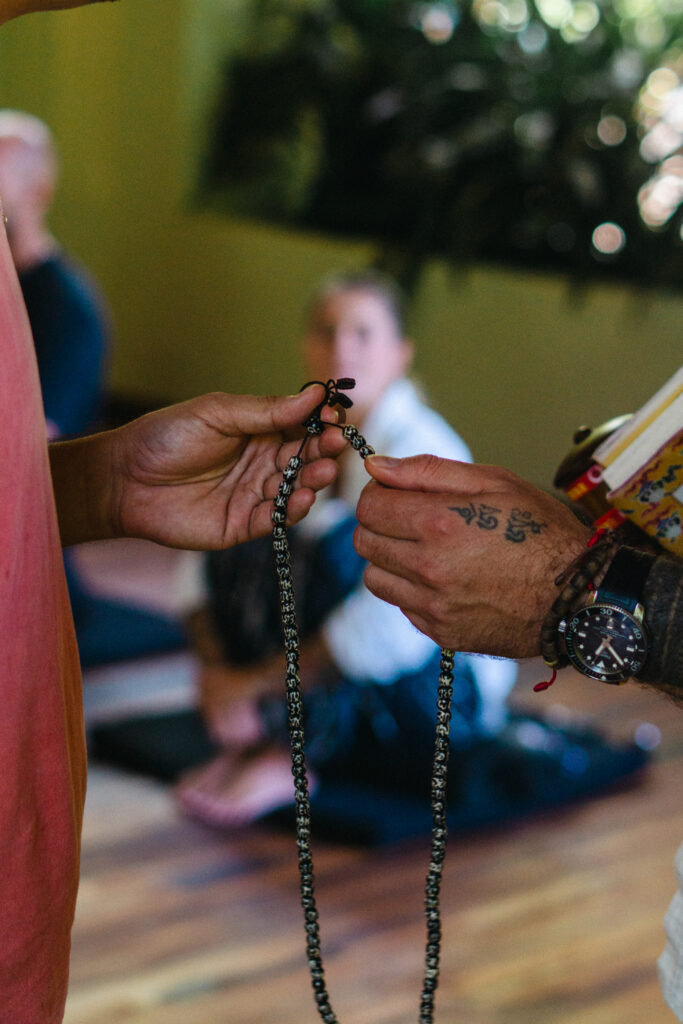
Our story began with a simple wish: to live a peaceful life in harmony with nature. In 2014, our founder Pema arrived in Colombia, dreaming of a quiet, yogic life in the jungle. But a sudden, near-death experience brought him to a hospital in Medellín, where he turned to meditation for strength and healing. As he recovered, others began seeking his guidance. What started as a personal journey soon grew into something much larger.
In 2016, he opened La Casa de Loto, and in 2025, Senda Loto — sanctuaries for spiritual seekers from all walks of life.

Pema (Tib. "Lotus") is a seasoned meditation guide and yogi with over 15 years of dedicated practice in Tibetan Buddhism, especially in the Dzogchen tradition. He has studied and trained with some of the most respected masters of our time, including H.H. The Dalai Lama, Dzongsar Khyentse, Dzogchen Ponlop, and his root teacher, the great yogi Loppon Jigme Rinpoche.
Losing both parents in childhood left a deep mark. That pain sparked a lifelong search for meaning. Music became his first refuge, leading to a successful career—but even at the height of success, something was missing. The silence beneath the noise kept growing, until it pulled him into a darkness he could no longer outrun.
At his lowest point—a moment when he considered ending his life—he saw a simple truth: that all thoughts and emotions are merely essence less projections of the mind, empty of substance. So he let go. Of the career. Of the chase. Of everything he thought he was. He walked away from the life he knew and set out alone—across countries, into long retreats, and deep into the unknown. He trained under wild yogis and Buddhist masters, facing himself again and again in silence and solitude.
Today, Pema’s teachings are raw, real, and rooted in lived experience. No fluff. No spiritual performance. Just practical insight from someone who’s been to the edge—and found a way through.


Becoming real is perhaps the most important—and most overlooked—part of the spiritual path. It’s not about becoming something more. It’s about shedding what isn’t true. The masks, the roles, the polished identities we’ve spent a lifetime building. And the hardest part? Realizing that even our spiritual path can become just another mask.
Materialism in its usual form is easy to recognize. The endless chase for possessions, comfort, status, validation. We grasp outwardly, hoping something “out there” will make us feel complete. But this grasping disconnects us. From others, from our deeper self, from the moment right in front of us. We begin to live on the surface of life—busy, consumed, and subtly afraid to slow down and feel what’s underneath.
Then we step onto a spiritual path, hoping for something more real. But without awareness, the same grasping follows us. Only now it’s cloaked in spiritual language and practice. We chase insights instead of income, status as a “wise” or “awakened” person instead of worldly success. We might meditate, do yoga, study teachings—all good things—but with the quiet hope they’ll elevate us above others, or shield us from discomfort.
This is spiritual materialism: when spirituality becomes another way to strengthen the ego. And like regular materialism, it too creates distance. We may feel “above” others who haven’t “woken up.” We may hide our pain behind teachings or pretend we’ve transcended things we’re still deeply tangled in. We disconnect—from our vulnerability, from honest connection, from the humility that makes love possible.
True spirituality reconnects us. And this is where vipassana—insight meditation—plays a vital role. By gently observing our experience, vipassana reveals the habitual patterns of grasping and clinging that keep us trapped in illusion. It shows us the masks moment by moment, with compassion and clarity, helping us to let go—not by force, but by natural recognition.
It breaks us open, not to make us better than others, but to make us real. It asks us to stop performing—for approval, for success, for spiritual validation—and just be here, fully. Present, flawed, awake to our own contradictions. Willing to feel. Willing to not know. Willing to let the ego die a little, again and again.
When we let go of the need to be someone—whether that someone is wealthy or enlightened—we begin to return to life, simplicity, kindness, quiet presence. And in that space, something sacred happens: we reconnect. With ourselves. With others. With the world as it is.
And that’s the beginning of freedom—not in becoming more, but in becoming real.
